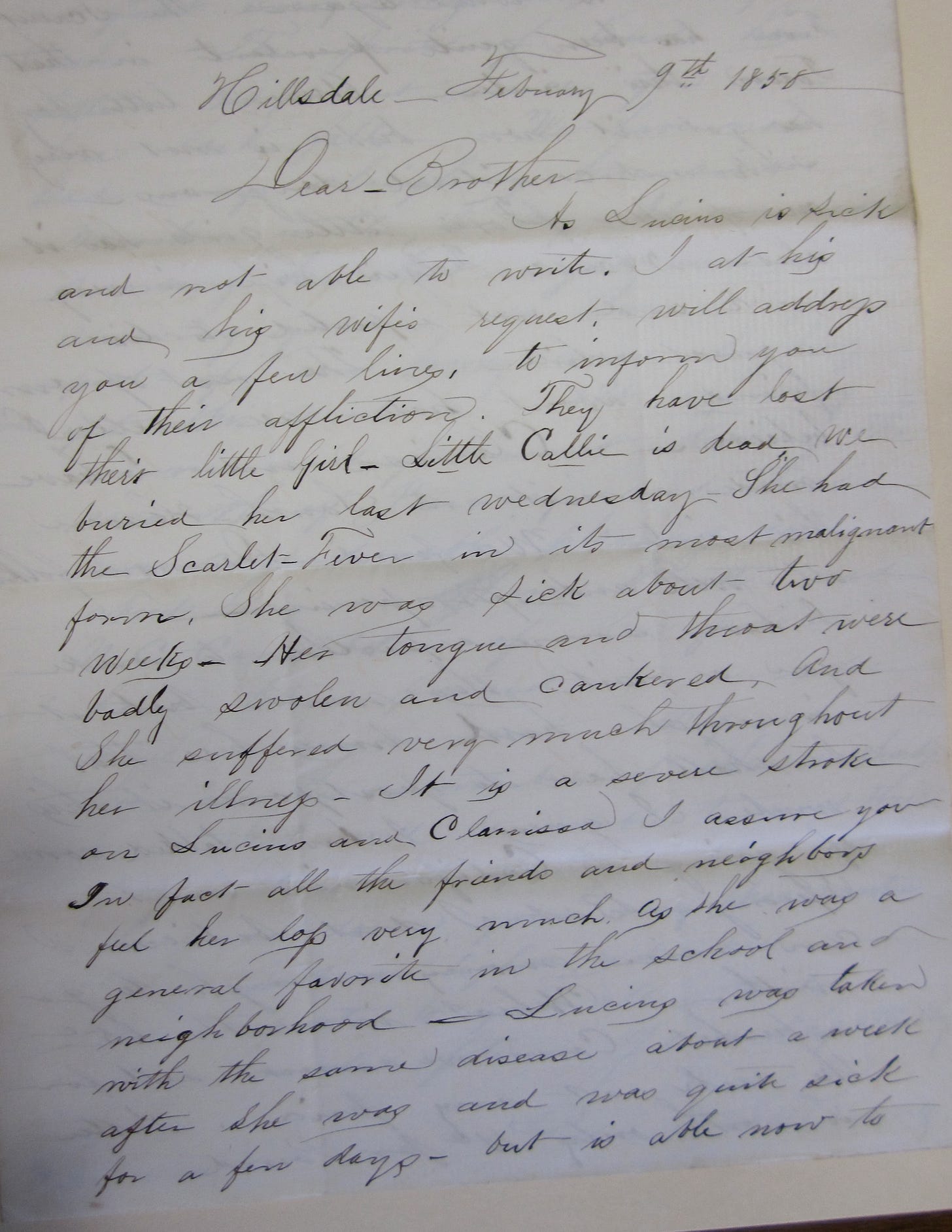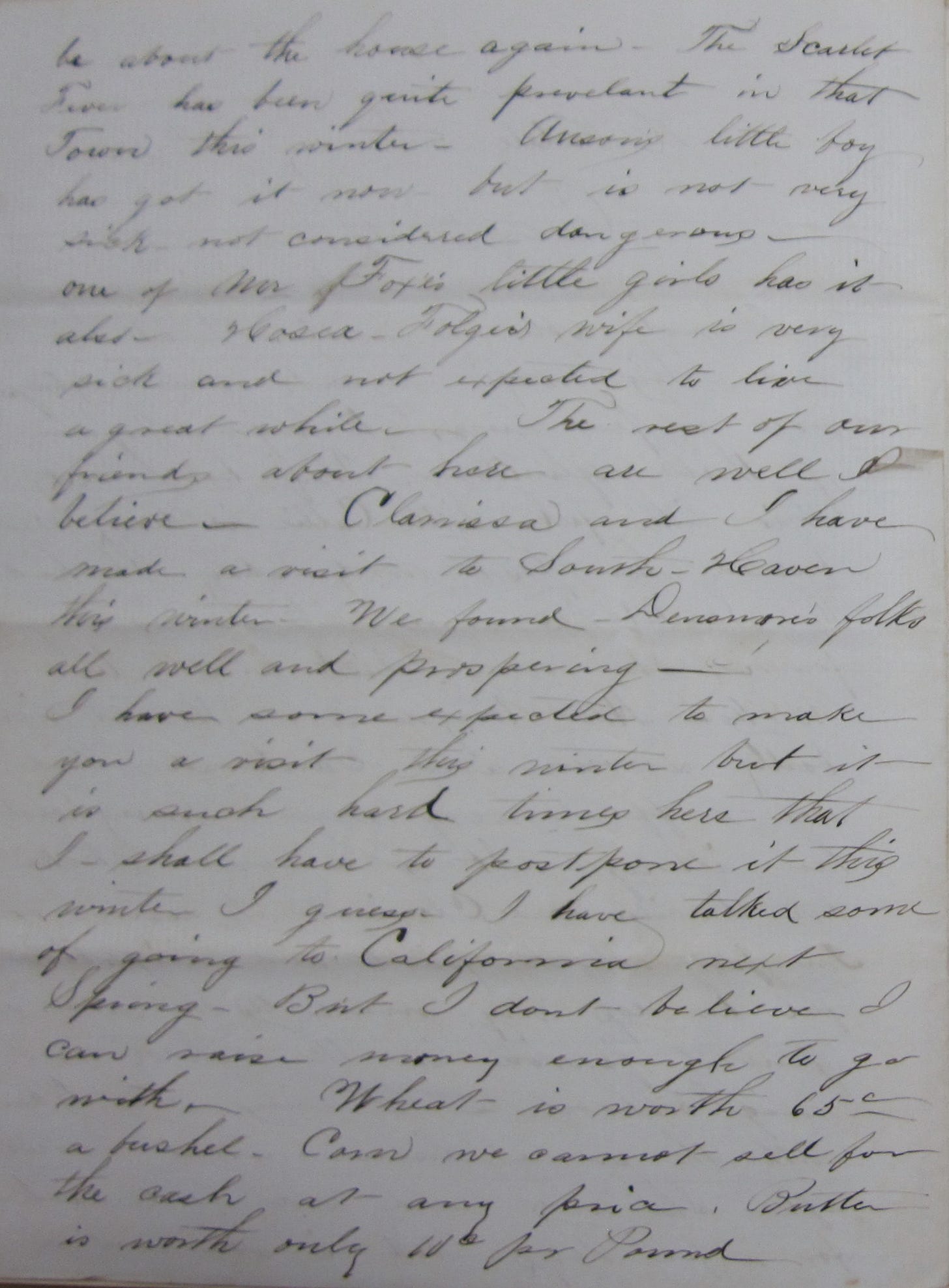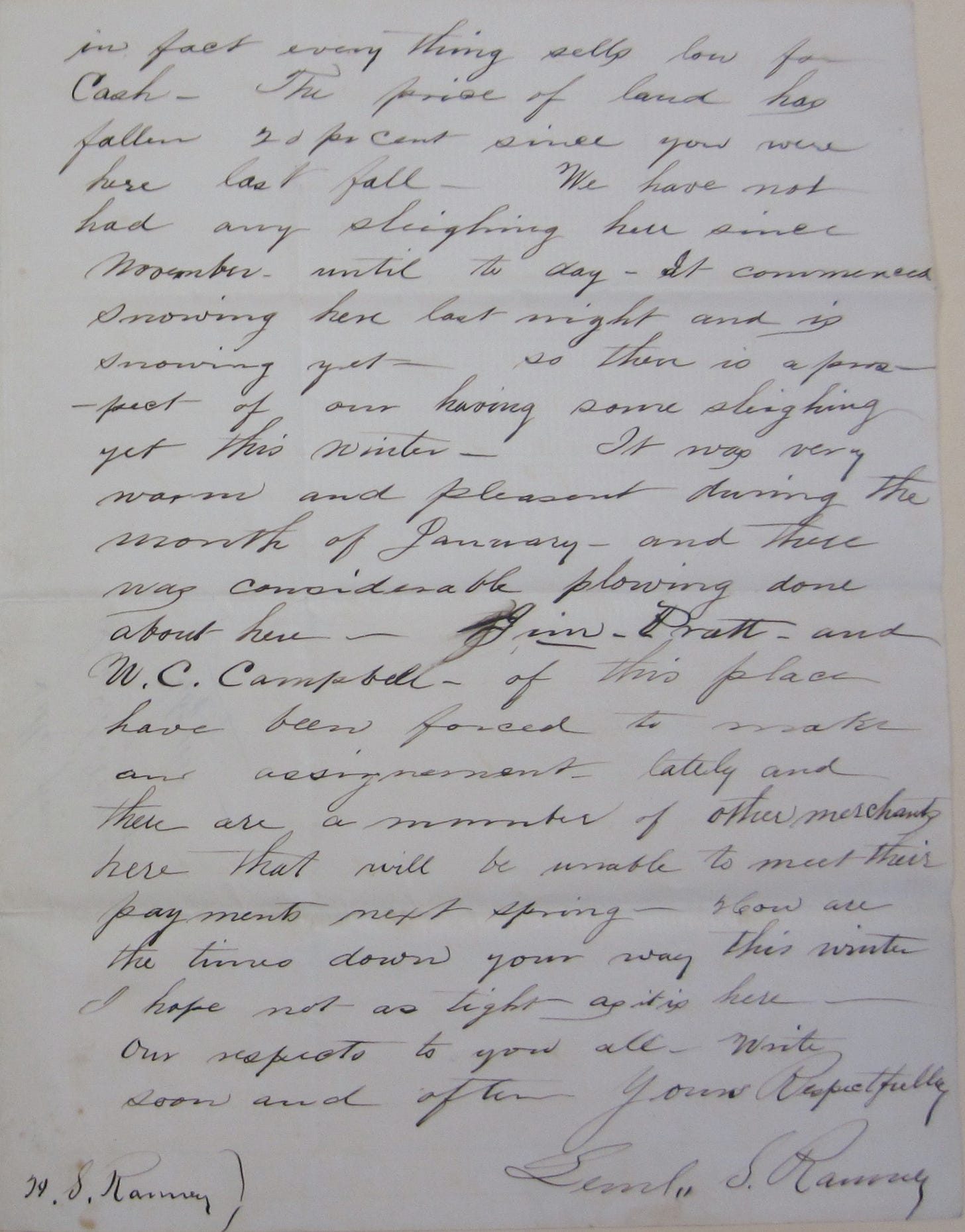Lemuel writes to Henry at Lucius’s request, to inform their brother that Lucius and his wife Clarissa have lost their seven-year old daughter, Carroline. She died of Scarlet Fever a week earlier, after an illness of two weeks during which Lemuel says “she suffered very much.” Lucius and their brother Anson’s one and a half-year old son, Everett, are also ill, but both their cases are less severe than Carroline’s. The fever is a bacterial infection (strep), and this is before the discovery of antibiotics like penicillin — which, unbelievable as it may seem, is less than a hundred years old, discovered in 1928.
Lemuel says Carroline’s death is not only “a severe stroke on Lucius and Clarissa,” but that their friends and neighbors all “feel her loss very much as she was a general favorite in the school and neighborhood.” But after devoting the first half of his letter to the details of Carroline’s illness and the spread of the fever in the area, Lemuel moves on to other matters. The recession historians know as “The Panic of 1857” is in full swing in Michigan. Land prices have eroded and farm commodities are selling at very low prices because there is no cash in the local economy and there has been a general collapse of credit. Lemuel says a number of local merchants will be unable to pay their debts, which will result in more bankruptcies and “assignments” of assets.
In spite of all the bad news, Lemuel remarks that the snow is finally falling, so there’s “a prospect of having some sleighing yet this winter.” Even in the middle of disaster and a letter filled with tragic news, there’s a glimmer of hope and an acknowledgment that life goes on.
My transcription follows the images:

Hillsdale February 9th 1858
Dear Brother
As Lucius is sick and not able to write, I at his and his wife’s request will address you a few lines to inform you of their affliction. They have lost their little girl. Little Callie is dead. We buried her last Wednesday. She had the Scarlet Fever in its most malignant form. She was sick about two weeks. Her tongue and throat were badly swollen and cankered and she suffered very much throughout her illness. It is a severe stroke on Lucius and Clarissa I assure you. In fact, all the friends and neighbors feel her loss very much as she was a general favorite in the school and neighborhood.
Lucius was taken with the same disease about a week after she was and was quite sick for a few days, but is able now to be about the house again. The Scarlet Fever has been quite prevalent in that town this winter. Anson’s little boy has got it now but is not very sick, not considered dangerous. One of Mr. Fox’s little girls has it also. Hosea Folger’s wife is very sick and not expected to live a great while. The rest of our friends around here are well I believe.
Clarissa and I have made a visit to South Haven this winter. We found Densmore’s folks all well and prospering. I have some expected to make you a visit this winter, but it is such hard times here that I shall have to postpone it this winter I guess. I have talked some of going to California next spring. But I don’t believe I can raise money enough to go with. Wheat is worth 65¢ a bushel. Corn we cannot sell for the cash at any price. Butter is worth only 10¢ per pound. In fact everything sells low for cash. The price of land has fallen 20 per cent since you were here last fall.
We have not had any sleighing here since November, until today. It commenced snowing here last night and is snowing yet. So there is a prospect of having some sleighing yet this winter. It was very warm and pleasant during the month of January, and there was considerable plowing done around here.
Jim Pratt and W. C. Campbell of this place have been forced to make an assignment lately, and there are a number of other merchants here that will be unable to meet their payments next spring. How are the times down your way this winter? I hope not as tight as it is here.
Our respects to you all. Write soon and often.
Yours Respectfully
Leml S. Ranney






Very sad!